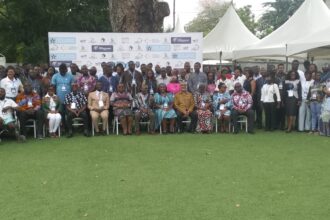The United Nations described female genital mutilation( FGM) as an abhorrent human rights violation affecting women and girls around the world.
According to the UN, over 200 million women and girls alive today had experienced FGM in 30 countries across three continents.
It said without concerted, accelerated action, a further 68 million girls could be subjected to this harmful practice by 2030.
The practice comprises all procedures that involve altering or injuring the female genitalia for non-medical reasons and is recognised internationally as a violation of the human rights of girls and women.
It reflects deep-rooted inequality between the sexes and constitutes an extreme form of discrimination against women and girls.
The practice has persisted for over 1,000 years and is mostly carried out on young girls when they have no option to make their wishes heard — some time between infancy and age 15.
Risks involved
It also carries risks for women’s ability to have children successfully and safely, as FGM brings significantly increased risk both of complications for the mother and neonatal death for their babies.
In Ghana, some parts of the Northern, Upper East, Upper West, Brong Ahafo and Volta regions are notable places where the practice still goes on.
The current national prevalence is about four per cent but regional prevalence, especially in some parts of the Northern, Upper East and Upper West regions could be higher due to some reports on FGM cases in some communities.
On December 20, 2012, the UN General Assembly adopted a resolution (A/RES/67/146) which “calls upon states, the United Nations system, civil society and all stakeholders to continue to observe February 6 as the International Day of Zero Tolerance for Female Genital Mutilation and to use the day to enhance awareness-raising campaigns and to take concrete actions against female genital mutilation”.
Sustainable development
The UN Sustainable Development Goal (SDG) 5, with a focus on gender equality, calls for the elimination of FGM by 2030.
Studies also indicate that in Ghana the prevalence rate in the 1990s was as high as 77 per cent but reduced drastically due to the advocacy and sensitisation that had gone on.
In a statement issued by the Ministry of Gender, Children and Social Protection to mark this year’s event, the sector Minister, Mrs Cynthia Mamle Morrison, said it was regrettable that the practice was still going on under cover, despite the numerous campaigns and education over the past years.
She called on the government, parliamentarians, religious leaders, traditional rulers, civil society organisations, the media, as well as the youth, faith-based and community-based organisations, not to relent their efforts to end “this gruesome act which has no health benefit to women and children”.
She urged the law enforcement agencies not to hesitate in prosecuting anyone caught in the act because the law against FGM, Act 741 of the Parliament of the Republic of Ghana entitled Criminal Code (Amendment) Act 2007, provides for imprisonment and/or the imposition of fines for both the person who performs the circumcision and those who request, incite or promote excision by providing money, goods or moral support.
UN Secretary-General
In another statement, the UN Secretary-General, António Guterres, had observed that “with strong political engagement, we are seeing success in several countries. But this progress is not enough to keep up with population growth. Unless we act now, the number of cases will continue to rise”.
He noted that sustainable development could not be achieved without full respect for the human rights of women and girls, pointing out that the UN joined hands with global, regional and national actors in supporting holistic and integrated initiatives to achieve that objective.
“With strong political commitment, we are seeing positive change in several countries.
However, if current trends persist, these advances will continue to be outpaced by rapid population growth where the practice is concentrated.
“On this Day of Zero Tolerance, I call for increased, concerted and global action to end female genital mutilation and fully uphold the human rights of all women and girls,” it said.
Source: Graphic.com.gh













